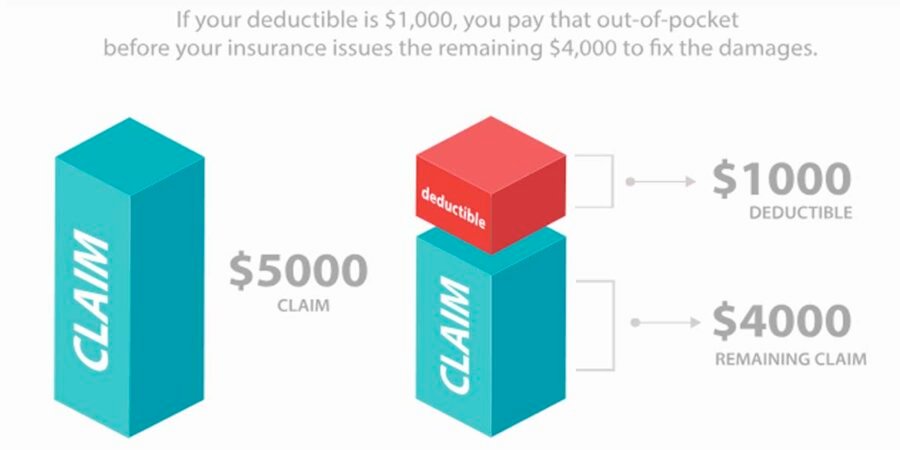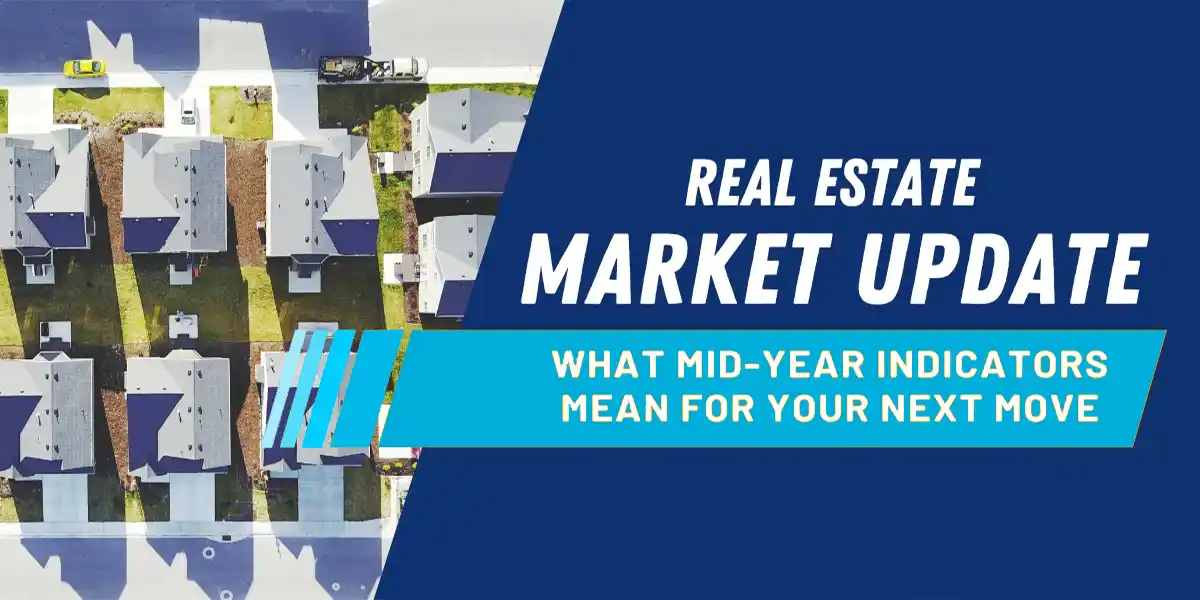
Save Money on Florida Home Insurance
Introduction
As natural disasters wreak havoc across the United States, Florida homeowners face escalating home insurance costs. With 28 weather-related disasters that that caused at least $1 billion in damages each1 in 2023 alone, premiums have surged by an average of 23% in 2024.
These events triggered a huge influx of home insurance claims, and analysts expect the increase in both catastrophes and claims to continue. Adding to the problem, construction labor and supply costs have risen, making it more expensive to repair affected homes. Consequently, home insurance rates have surged: In 2024, Bankrate reports, premiums are already up an average of 23%, following double-digit increases the previous year.2,3
In disaster-prone regions, the situation is even more challenging. Some insurers have pulled out of risky areas entirely, and many of those that still offer policies in high-risk areas have doubled or even tripled their premiums.4
For most homeowners, comprehensive home insurance coverage is crucial for financial security—but massive rate increases can turn a once-affordable home into a financial burden. They can also pose a serious challenge for sellers.
A home insurance policy is typically required to get a mortgage, and, in some hard-hit regions, we’re seeing sales fall through or homes sit on the market because insurance policies are unattainable or too expensive.5,6
The exodus of insurers from high-risk areas exacerbates the challenge, leaving homeowners grappling with unaffordable premiums. However, amidst these daunting trends, homeowners can deploy proactive strategies to alleviate financial strain while safeguarding their homes.
This article presents expert advice and practical solutions to navigate Florida’s evolving insurance landscape, empowering homeowners to secure comprehensive coverage without breaking the bank.
1. Shop Around and Compare Quotes
In an era of soaring premiums, diligent comparison shopping emerges as a cornerstone of cost-saving measures. Obtain quotes from multiple insurers and leverage online platforms like Insurance.com, Policygenius, and Lemonade to compare rates and coverage options.
Getting multiple quotes is a smart move for many major purchases, including home insurance. We recommend reviewing at least three estimates before you commit to a policy. You can get quotes either by reaching out to insurers directly or by working with an independent insurance broker.7
You’ll need to provide detailed information about the property you’re insuring and your claims history. Scrutinize policies meticulously to unearth potential coverage gaps and ensure optimal protection at competitive rates.
Be sure to consider how much the policy will pay out to repair or replace your home and review caps on personal possession and liability claims. It’s also smart to read reviews from policyholders (Trustpilot is a good place to start) and ratings published by organizations like the Better Business Bureau and J.D. Power.

2. Bundle Your Policies
Maximize savings by bundling multiple policies, such as home and auto insurance, with a single provider. By consolidating insurance needs, homeowners can unlock significant discounts and streamline coverage management. Evaluate bundling deals from various insurers to ascertain the most cost-effective option tailored to your needs.
Insurers want to get as much of your business as possible, so most offer significant discounts if you bundle your home and auto insurance, meaning that you package the two policies together. With some insurers, you can get even higher savings by bundling more than home and auto—RV, boat, jewelry, and life insurance are potential options to consider.
According to US News and World Report, insurers typically offer customers who bundle home and auto insurance 10-25% savings on monthly premiums. This approach also has other advantages: It cuts down on your paperwork, and in some cases—like if a storm damages both your home and car—you may be able to pay just one deductible instead of two when you file a claim.8
However, before you sign on the dotted line, remember strategy #1 and be sure to shop around. In some cases, bundling isn’t the cheaper option, and bundling deals vary between companies. It’s also critical to carefully check that the bundled coverage offers everything you need.
3. Increase Your Deductible
Did you know that being a nonsmoker might qualify you for a home insurance discount?8 Some insurers offer some surprising incentives for policyholders who pose a statistically lower risk of filing a claim. In the case of nonsmokers, that’s because of the decreased risk of a home fire.
Many carriers also offer discounts to military-affiliated families, homeowners in certain professions, such as teachers or engineers, or recent homebuyers. Sometimes, you can also save by opting for paperless billing or paying your premiums for a full year upfront.10
Since available discounts vary significantly between insurers, the best strategy is to simply ask a representative for the full list of available discounts so you can see what cost savings might be available to you.
Strategically adjust your deductible to strike a balance between immediate costs and long-term savings. Opting for a higher deductible can substantially lower annual premiums, offering substantial savings over time. Assess your financial readiness to cover the increased deductible in the event of a claim, aligning your decision with your risk tolerance and savings capacity.
The size of your deductible—which is the amount you pay before your insurance coverage kicks in on a claim—is a major factor in your insurance cost.
A low deductible, such as $500, comes with higher premiums, while a higher deductible, like $2,500 or even $5,000, costs less on a monthly basis. In some cases, you may be able to customize your coverage further by designating a different deductible for certain kinds of claims, such as those caused by named storms or natural disasters.
If you are confident that you have enough in savings to cover that initial outlay if needed, choosing a higher deductible can help you save significantly over the long term. According to Nerdwallet, raising your deductible from $1,000 to $2,500, for example, could save you an average of 11% each year.9

4. Improve Home Security Measures
Fortify your home’s security infrastructure to mitigate risks and qualify for insurance discounts. Install smoke detectors, burglar alarms, and storm shutters to bolster property safety and reduce premiums.
Consider investing in reinforced roofing and hurricane-resistant materials to fortify your home against Florida’s notorious weather hazards, further enhancing your eligibility for insurance discounts.
You can usually get discounts of at least 5 percent for a smoke detector, burglar alarm or dead-bolt locks. Some companies offer to cut your premium by as much as 15 or 20 percent if you install a sophisticated sprinkler system and a fire and burglar alarm that rings at the police, fire or other monitoring stations.
These systems aren’t cheap and not every system qualifies for a discount. Before you buy such a system, find out what kind your insurer recommends, how much the device would cost and how much you’d save on premiums.
5. Maintain a Good Credit Score
Harness the power of a strong credit score to unlock favorable insurance premiums. Insurers utilize credit-based insurance scores to assess risk, making responsible financial management imperative.
Prioritize timely bill payments and prudent debt management to bolster your creditworthiness, positioning yourself for lower insurance premiums and enhanced financial resilience.
Establishing a solid credit history can cut your insurance costs. Insurers are increasingly using credit information to price homeowners insurance policies. In most states, your insurer must advise you of any adverse action, such as a higher rate, at which time you should verify the accuracy of the information on which the insurer relied.
To protect your credit standing, pay your bills on time, don’t obtain more credit than you need and keep your credit balances as low as possible. Check your credit record on a regular basis and have any errors corrected promptly so that your record remains accurate
6. Review and Update Your Policy Annually
Worried that your premiums will rise significantly in the future? Try to avoid making a claim unless truly necessary. Many insurers offer discounted rates to policyholders who go a certain number of years without filing a claim, and filing multiple claims typically results in large increases.10 If you file too many, you may even risk nonrenewal of your policy.11
Since the cost of even a small premium increase can add up significantly over time, if you have minor damage to your home—for example, if a few shingles blew off your roof in a windstorm—it may be a wiser long-term financial decision to pay out of pocket instead of filing a claim.
If the cost of the repair is less than your deductible, it never makes sense to file, and if it’s just slightly above your deductible, it’s also usually best to pay for the repairs yourself. Additionally, always be sure to review your policy before you make a claim. Even claims that are denied can count against you, so it’s not worth filing if the damage is clearly excluded from coverage.11
As your circumstances evolve, ensure that your insurance policy remains aligned with your changing needs. Conduct annual reviews to accurately reflect your home’s value, recent renovations, and coverage requirements. Proactively adjust your policy to optimize coverage and capitalize on potential savings arising from policy adjustments.
You want your policy to cover any major purchases or additions to your home. But you don’t want to spend money for coverage you don’t need. If your five-year-old fur coat is no longer worth the $5,000 you paid for it, you’ll want to reduce or cancel your floater (extra insurance for items whose full value is not covered by standard homeowners policies such as expensive jewelry, high-end computers and valuable art work) and pocket the difference.

7. Consider a Wind Mitigation Inspection
In Florida’s hurricane-prone terrain, preemptive measures like wind mitigation inspections offer substantial insurance savings. Identify features that mitigate wind damage, such as reinforced doors and windows, and invest in necessary improvements.
By obtaining a wind mitigation inspection and implementing recommended enhancements, homeowners can qualify for significant insurance discounts, bolstering financial resilience amidst escalating premiums.
The state of Florida requires insurance companies to offer discounts for protecting your home and mitigating damage that may be caused by hurricane-force winds.
There are specific mitigation steps that you can take to help protect your home and family during a hurricane. Securing your roof so it doesn’t blow off and protecting your windows from flying debris are the two most cost-effective measures you can take to safeguard your home and reduce your windstorm (hurricane) premium. You may also replace your garage door with a hurricane resistant garage door or reinforce your garage door with hurricane-resistant garage door bracing kits.
By installing mitigation features, you may be eligible to receive a reduction in your windstorm premium, reduce your out of pocket expenses, such as your hurricane deductible, and minimize the damage to your home from a catastrophic event. These
discounts apply only to the windstorm coverage of your policy.
Insurance companies are required to provide you with a copy of the Wind Mitigation Notice of Premium Discount Form with each new policy and at each renewal thereafter. This form advises you of the policy deductible options and provides an example of how much your premium can be reduced if you have wind mitigation features on your home. You can download a copy of the Wind Mitigation Notice of Premium Discount Form from the Office of Insurance Regulation.
Are you aware that there are steps you can take to help protect your home and make your home more resistant to wind? Hurricanes have caused tens of billions of dollars in insured damages and predictions of more catastrophic hurricanes making landfall in Florida have triggered increases in insurance premiums in an effort to cover potential future losses.
Homeowners will need a qualified inspector to properly document your home’s wind mitigation features. The inspector will itemize the specific features incorporated in your home’s construction on the Uniform Mitigation Verification Inspection Form. In addition, the inspector must document the mitigation features listed on the form with accompanying photographs.13
Bonus: Be Strategic About Home Imporvements
Insurance premiums alone may not be the deciding factor for a home improvement project, but it’s important to know how renovations could impact your rates—for better or worse.
For example, some upgrades and repairs can reduce your premiums by making your home safer or less prone to certain types of damage. These include:12
- Upgrading your electrical system
- Updating your plumbing
- Installing a monitored security system
- Adding a fire sprinkler system
- Replacing the roof
On the other hand, some upgrades can raise premiums significantly, either because they increase the value of your home (and therefore the cost to replace it) or because they pose a hazard. These include:12
- Installing a swimming pool or other water features
- Building an extension or expanding your living space
- Upgrading materials, like flooring or countertops
- Adding a fireplace or woodstove
Whether or not your planned renovations are on either of these lists, it’s wise to inform your insurer about changes you make to your home—otherwise, you may risk gaps in coverage. And you’re always welcome to check with us before you begin any home improvement project to find out how it could impact the value and resale potential of your home.
Conclusion
Navigating rising home insurance costs in Florida demands proactive measures and strategic planning. By implementing these seven strategies—ranging from diligent comparison shopping to fortifying home security—homeowners can mitigate financial strain without compromising coverage integrity.
Regular policy reviews, consultations with insurance professionals, and leveraging available discounts are essential elements of a comprehensive cost-saving approach. As homeowners confront the evolving insurance landscape, proactive measures and informed decision-making are paramount, ensuring optimal protection for Florida’s most valuable asset—their homes.
BOTTOMLINE: Protect Your Investment Without Sacrificing Enjoyment of Your Home
Getting the coverage you need for financial security without overpaying can be a tricky balance, especially in today’s environment. But remember, while it’s important to find the best deal you can, home insurance isn’t an area to skimp on.
For advice on your specific risks and the type of coverage you need, we recommend consulting with a knowledgeable insurance professional. We’re happy to connect you with a trusted adviser in our network. And if you’re considering a home renovation, feel free to reach out for a free consultation on how it might affect your property value (and your premiums).
The above references are opinions for informational purposes only. These are not intended to be financial, legal, insurance, or tax advice. Consult the appropriate professionals for advice regarding your individual needs.
For help choosing the right policy, reach out to us for a list of trusted insurance professionals. To schedule your free consultation, text or call us at our team office: 561-33-1779. Or if you would rather, Email Us Here. Also, please check out this article: Comparison of Best Homeowners Insurance in Florida
https://www.usnews.com/insurance/homeowners-insurance/local/florida
Sources:
1. https://www.climate.gov/news-features/blogs/beyond-data/2023-historic-year-us-billion-dollar-weather-and-climate-disasters
2. https://www.bankrate.com/insurance/homeowners-insurance/homeowners-insurance-cost/
3. https://www.policygenius.com/homeowners-insurance/home-insurance-pricing-report-2023/
4. https://www.cnn.com/2023/09/20/business/insurance-price-increase-risk-climate-first-street-dg/index.html
5. https://www.bbc.com/news/business-66367224
6. https://realestate.usnews.com/real-estate/articles/how-climate-change-could-impact-your-home-value
7. https://www.nerdwallet.com/article/insurance/how-to-shop-for-homeowners-insurance
8. https://www.usnews.com/insurance/homeowners-insurance/how-to-bundle-home-and-auto-insurance
9. https://www.nerdwallet.com/article/insurance/save-on-homeowners-insurance
10. https://www.marketwatch.com/guides/insurance-services/how-to-save-on-homeowners-insurance/
11. https://www.bankrate.com/insurance/homeowners-insurance/when-to-file-a-home-insurance-claim/#when
12. https://www.bankrate.com/insurance/homeowners-insurance/home-insurance-and-renovations/
13. https://www.myfloridacfo.com/docs-sf/consumer-services-libraries/consumerservices-documents/understanding-coverage/consumer-guides/premium-discounts-for-hurricane-loss-mitigation.pdf?sfvrsn=cf7d1fb8_6#:~:text=Securing%20your%20roof%20so%20it,your%20windstorm%20(hurricane)%20premium.
14. https://www.iii.org/article/how-to-save-money-on-your-homeowners-insurance
15. https://www.nerdwallet.com/article/insurance/save-on-homeowners-insurance
16. https://www.myfloridacfo.com/division/consumers/understanding-insurance/faq/home
17. https://content.naic.org/article/consumer-insight-tips-saving-your-homeowners-insurance
18. https://consumer.ftc.gov/articles/credit-scores
19. https://www.myfloridacfo.com/division/consumers/understanding-insurance/homeownersinsuranceoverview
20. https://www.floridadisaster.org/globalassets/importedpdfs/wind-mitigation-booklet-.pdf



